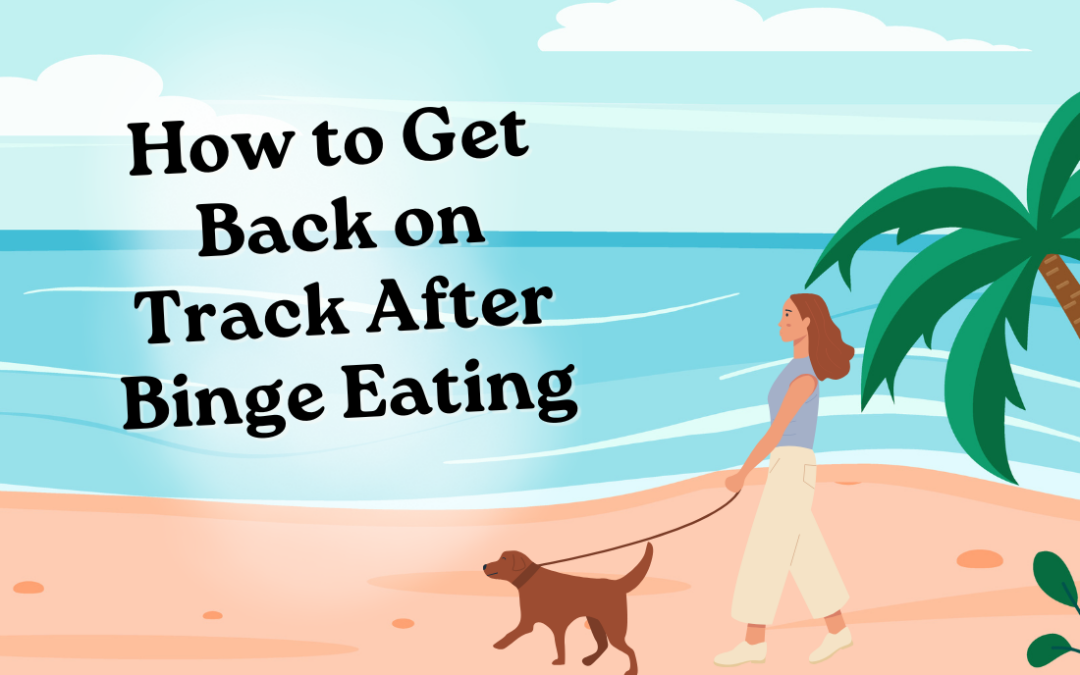If you’re feeling overwhelmed after a binge and are wondering how to get back on track after binge eating, you’re not alone.
It’s reasonable to feel frustrated after binging, but it’s important to remember that recovery is possible. If you’re searching for practical advice on what to do next to get your routine back on course, this guide is here to help you with a gentle reset.
Written by Jenn Hand, Holistic Nutritionist, Board Certified Health Coach, NBC-HWC
From Binge Eating to Food Freedom
When you’re stuck in a binge eating cycle, it can feel impossible to imagine a life free from food struggles.
I worked with a woman named Melissa, who used to feel deeply trapped in a cycle of binge eating and endless dieting, believing she’d never feel free around food.
Over time, she shifted her focus from strict control to gentle curiosity, exploring what her body was telling her–not based on diet rules, but based on her body’s needs as she began to learn them.
She began noticing small victories—choosing a food she enjoyed without guilt, stopping when she felt satisfied, and getting through a stressful day without eating at night. Little by little, she saw glimpes that freedom around food is possible, and that with patience and self-compassion, breaking the cycle is within reach.
Table of Contents
- How to Recover After Binge Eating
- 10 Steps to Take to Prevent Future Binges
- Understanding the Binge-Restrict Cycle
- How to Manage Guilt and Shame After a Binge
- Rebuilding Trust in Your Body’s Hunger and Fullness Signals
- When to Seek Professional Help or Coaching
- Long-Term Strategies to Prevent Future Binges
- Common Questions
How to Recover After Binge Eating
The post binge feeling can be a challenging one to overcome.
I remember feeling deep hopelessness and despair every time I binge ate, fearing I’d never escape the cycle.
After each binge, I’d swear to myself that I’d start over tomorrow, and I would punish myself with strict rules, only to end up bingeing again later. A part of my healing process was to work to show myself kindness and focus on very small steps that allowed me to rebuild trust in my body over time.
The journey isn’t about perfection; it’s about taking small, steady steps that honor your body and mind.
Here are some ways to begin!
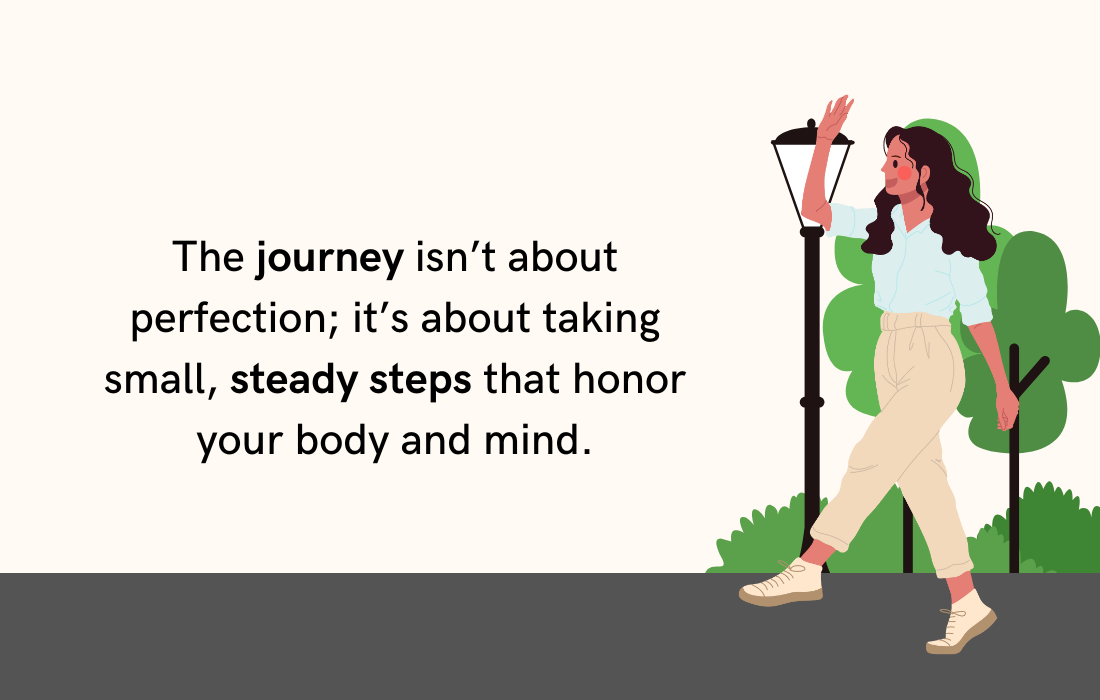
10 Steps to Take to Prevent Future Binges
1. Be Kind to Yourself
Treat yourself with compassion rather than judgment; recovery from binge eating is a journey, and being kind to yourself helps you make lasting changes. Use curiosity rather than criticism to help create space to learn from your eating patterns.
2. Work on Having a Positive “Rule-Free” Relationship with Food
Letting go of rigid food rules can help you listen to your body and build a more relaxed, enjoyable relationship with eating. Begin with a small, less triggering food rule to break rather than trying to let them go all at once.
3. Identify Emotional and Environmental Triggers
Noticing what leads to binge eating—whether it’s stress, certain settings, or specific feelings—can help you find healthier ways to cope. It can be helpful to journal here, as this enables you to get in touch with what specifically triggers you to then make a plan to move through it.
4. Practice Mindful Eating
Slow down, savor each bite, and focus on your food without distractions; this helps you tune into fullness and feel more satisfied. It can be challenging to eat without checking emails or playing on your phone, but it creates space to help you hear your body’s signals!
5. Start a Food Journal
Journaling your experiences, emotions, and eating patterns can reveal insights into your habits and help you make intentional choices. I typically recommend doing this without weighing, measuring, or counting any food. It’s more a log to help you link overeating to emotions.
6. Eat Balanced with Regular Meals and Snacks
Eating nutritious foods at regular intervals keeps energy steady and helps prevent the extreme hunger that can lead to binge eating. If you need a gentle guideline to keep in mind, aim to add protein to your meals and snacks and eat every 3-4 hours.
7. Fill Up on Nutrient-Rich Foods
When possible and depending on where you are in your journey, choose whole, nutrient-dense foods like fruits, vegetables, and whole grains that satisfy and nourish your body. You can allow all foods in moderation, of course!
8. Hydrate and Stay Hydrated
Drink enough water throughout the day to reduce cravings and ensure you’re not confusing thirst with hunger. Try sparking water, tea, and flavored water if you aren’t a huge fan of plain water.
9. Get Moving and Stay Active
Incorporate movement you enjoy to support a positive mindset and relieve stress, which can reduce binge urges. Moving your body also helps you connect to yourself physically. The more we connect with our body, the more we become attuned to what it needs.
10. Focus on Quality Sleep
Aim for 7-8 hours of sleep each night, as lack of rest can increase cravings and make you more prone to binge eating. Sleep is an underrated part of our health!
Bonus Tip: Avoid Weighing Yourself
Let go of the scale to help you focus on how you feel rather than on numbers, which reduces pressure and promotes a positive mindset.
Tossing the scale was one of the most helpful things I did early in my journey. It nudged me into focusing on how foods made me feel rather than how it would impact a number.
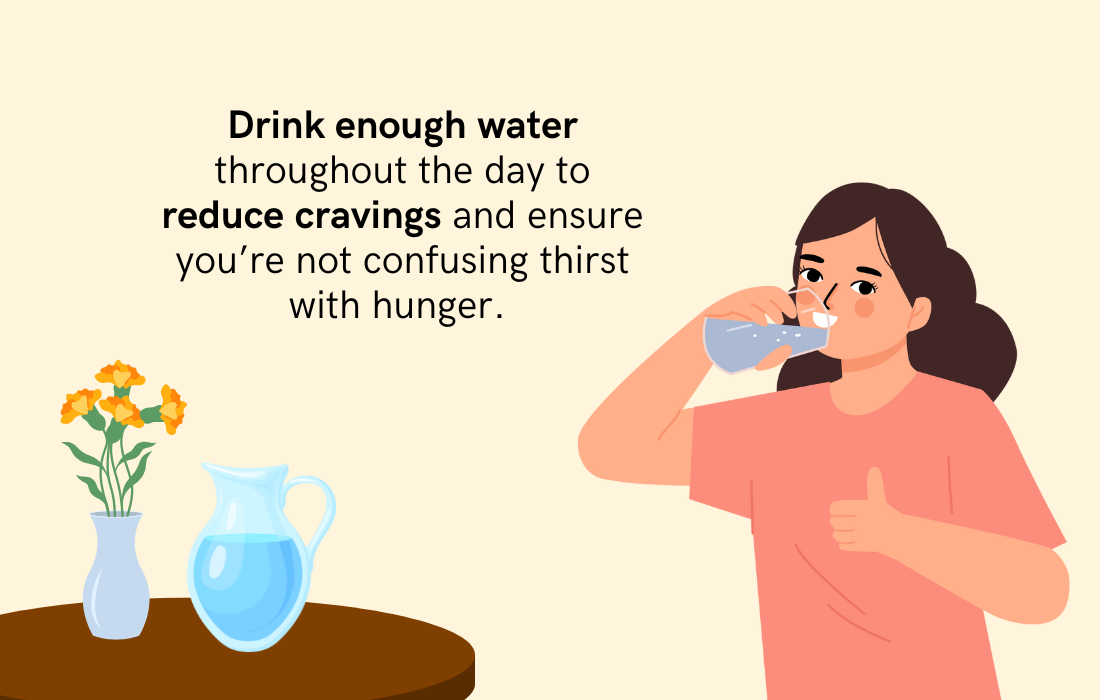
Understanding the Binge-Restrict Cycle
The binge-restrict cycle often begins when we skip meals or try to “make up” for eating large quantities by restricting food intake.
This cycle can lead to intense hunger, low energy, and a strong desire to overeat, as the body tries to make up for missed nourishment. When we skip meals, it sets us up to crave more food later, often leading to binge eating and perpetuating the cycle.
Breaking this pattern starts with nourishing the body consistently, rather than letting restrictions dictate our eating.
How to Manage Guilt and Shame After a Binge
It’s common to feel guilt or shame after a binge, especially if you’re worried about weight gain or feel like you’ve lost control.
Many people feel that binge eating leads to instant weight gain, which can deepen those feelings of self-blame and frustration. However, one binge doesn’t define your relationship with food or your body; it’s a small moment in the bigger picture.
Practicing self-compassion and letting go of judgment are key steps in releasing guilt and making peace with food choices. I used to do a lot of self-talk around guilt…I’d recite affirmations and mantras to give myself permission to make “mistakes,” to have extra cookies, to take care of myself and not restrict the next day, etc.
Rebuilding Trust in Your Body’s Hunger and Fullness Signals
Reconnecting with your body’s natural hunger and fullness cues takes patience and practice.
By practicing intuitive eating, you can gradually tune into what your body is signaling—whether it’s asking for nourishment or telling you it’s comfortably full. Over time, learning to honor these cues builds trust in your body’s wisdom and helps you feel more relaxed around food. And it does take time!
That is why in the beginning, gentle structure can help you start to hear feedback and signals from the body. Taking a chance to trust those signals and then get feedback on how to tweak it for next time is an evolution over time!
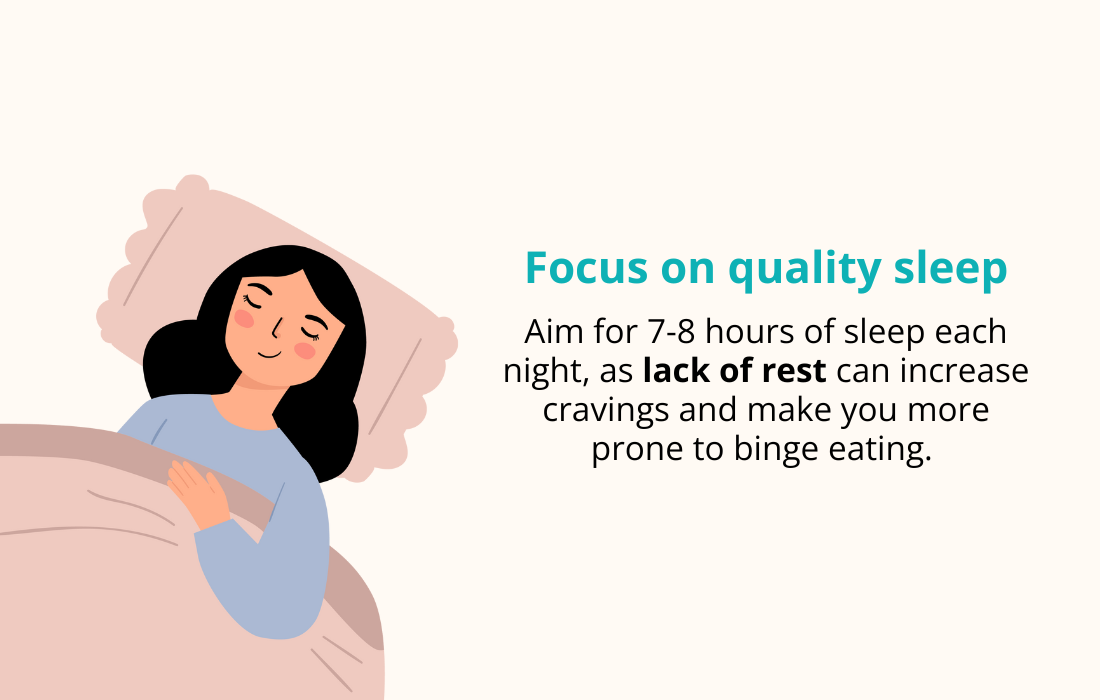
When to Seek Professional Help or Coaching
If you find yourself binge eating frequently or feel that it’s affecting your quality of life, it may be time to seek support from a professional, like a nutritionist, food coach, or therapist.
Frequent binges can place stress on your digestive system and make it harder to feel balanced. With the guidance of a professional, you can explore the underlying causes of binge eating and develop strategies to feel more at ease with food and your body.
Long-Term Strategies to Prevent Future Binges
Creating a balanced relationship with food requires long-term strategies that support your health goals, healthy choices, and, if it’s a goal, holistic and lasting weight loss.
By establishing routines that include consistent, nourishing meals, and listening to your body’s needs, you can build habits that help prevent the cycle of restriction and binge eating. Focusing on self-care, rather than perfection, lets you focus on health rather than weight. My favorite motto? Pretty good is perfect!
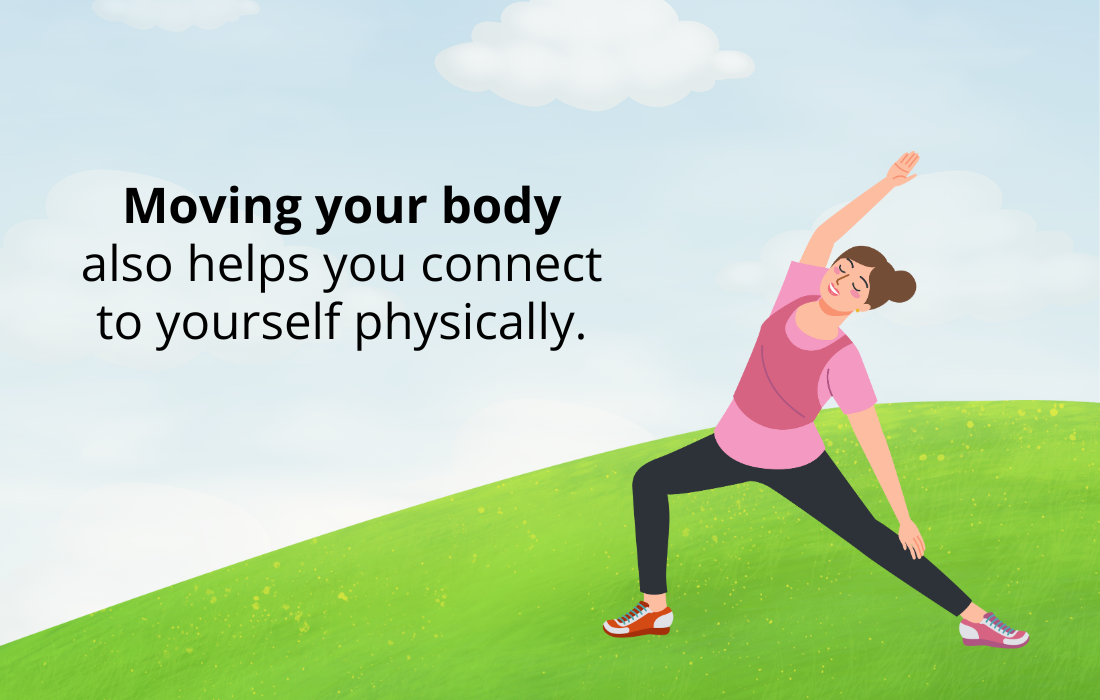
Common Questions
Will you gain fat after a binge?
One binge won’t lead to weight gain—our bodies are resilient, and one episode won’t drastically change your weight.
How do I reset my gut after binge eating?
Focus on gentle, nourishing foods, hydration, and mindful eating to help your gut feel balanced again.
How many calories are considered a binge?
There isn’t a set number; a binge is more about feeling out of control and eating past comfort, rather than a specific calorie amount. If you feel out of control and compulsive, that’s categorized as a binge.
Why do I feel like I can’t stop eating?
This feeling can stem from restriction, stress, or emotional triggers—addressing these can help you feel more in control. Over time, learning to honor your body’s cues can build trust and reduce the need to overeat.
What makes me eat so much even when I’m not hungry?
Eating when not physically hungry can come from emotional needs, habit, or restrictive dieting that disrupts natural hunger cues. Becoming aware of these patterns helps you separate emotional needs from physical hunger.
How can I stop compulsive eating?
See if you can bring more awareness around what drives you to eat and practice non-judgmental mindfulness can make a big difference. Building self-compassion is key, as it helps you break the cycle without harsh judgment.
Why do I keep binge eating at night?
Nighttime bingeing is often triggered by restricting during the day or by emotional or mental fatigue—aim for balanced eating and self-care. Setting up a consistent meal schedule and self-soothing routines can help break this habit over time.
What can I do to control my eating urges?
Try tuning into what you truly need in the moment, whether it’s comfort, rest, or nutrition—this helps reduce urgent cravings. Taking a pause to breathe and reflect before eating can give you clarity on your true needs.
How do I know if I have a binge eating disorder?
If binge eating feels frequent and impacts your quality of life, seeking support from a professional can help you find relief. Recognizing these patterns is a courageous step, and there are resources to help you heal and find balance.
Related Articles
⚪ What Is Binge Eating?
⚪ Why Do I Binge Eat? Uncovering the Root Causes of Binge Eating
⚪ How to Stop Binge Eating. I Stopped Binge Eating, and You Can Too.
Get the Normal Eater’s Newsletter
Join 8000+ women who are overcoming overeating, binge eating, and breaking up with dieting forever. Get Jenn’s inspiring and actionable weekly newsletter with the latest posts, podcasts, and tips on how to love your body, find food freedom, and lose weight holistically.
Get the Normal Eater’s NewsletterWork with an Emotional Eating & Holistic Nutrition Coach
Overcome Bingeing and Emotional Eating and Break Up with Yo-yo Dieting
Working with an emotional eating coach and holistic nutritionist can help you get free from the frustrating binge and restrict cycle and stop yo-yo dieting.
You don’t have to be obsessed with food or have a million rules around eating to find your natural weight and learn to love your body. Ready to actually see a lasting change and experience true freedom?
Schedule a 20-min CallAbout the Author:

Jenn Hand has been helping women like you become normal eaters since 2015.
She’s worked with thousands of women, helping them to balance their bodies, end bingeing, stop obsessing over food, and start feeling amazing again. As a board-certified health coach and holistic nutritionist, Jenn knows how to support you in making real positive changes that last.
Her articles have been published on Mind Body Green, Tiny Buddha, Thrive Global and other local and global media platforms. She’s the author of How to Be a Normal Eater and the creator of The Normal Eater’s Club program. Listen to Jenn’s advice and tips on the Cake Doesn’t Count Podcast, or read more of her articles for free on the Food Freedom Blog.
Learn About Coaching!
